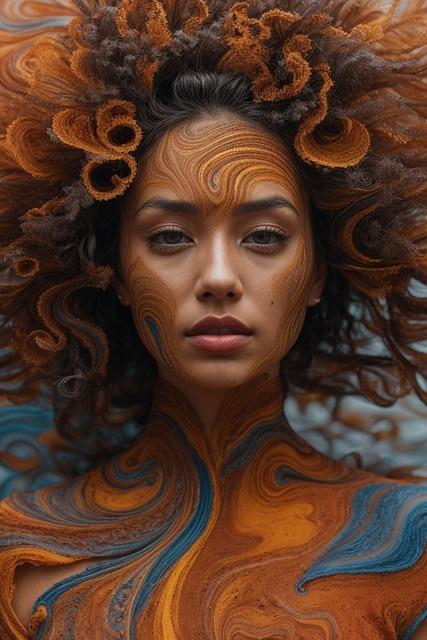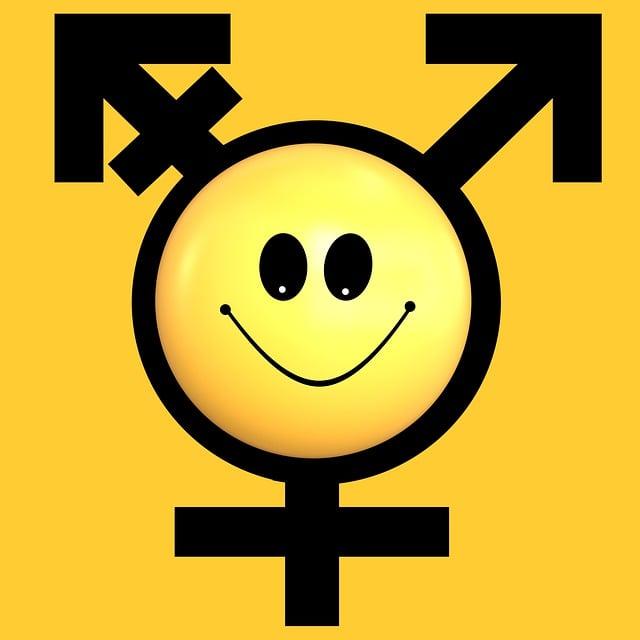In the realm of human sexuality, physical attributes often occupy a significant space in our collective consciousness. These attributes, ranging from body shape and size to facial features and hair color, have long been subject to cultural ideals and societal norms. But what do these physical markers truly symbolize? Beyond mere aesthetics, they often hold symbolic insights into our desires, expectations, and personal narratives. In this article, we will delve into the world of ideal sexual and physical attributes, uncovering the underlying meanings and exploring the fascinating intricacies that shape our perceptions of beauty and attractiveness. By examining these symbolic insights, we can gain a deeper understanding of the complex interplay between physical appearance and our innate human nature.
1. Unraveling the Concept of Ideal Sexual/Physical Attributes: A Psychological Perspective
In the quest for understanding human desires, it is essential to explore the intricate concept of ideal sexual and physical attributes. From a psychological standpoint, this fascinating topic delves deep into the complex mechanisms that shape our attraction towards certain characteristics. By unraveling these factors, we gain profound insights into the psychological underpinnings of human attraction and the subsequent impact on personal relationships and self-perception.
At the heart of the matter lies the notion of personal preference, where individuals gravitate towards specific sexual and physical attributes based on various factors. These preferences are molded by societal influences, individual experiences, cultural norms, and evolutionary instincts. In the realm of sexual attraction, societal ideals surrounding body shapes, facial features, height, and other physical traits can subtly sway our own perceptions and desires. Similarly, personal experiences and engagements shape our attraction patterns, ultimately influencing the qualities we find enticing in a potential partner.
- Factors influencing ideal sexual/physical attributes:
- Evolutionary biology and mate selection theories
- Cultural and societal influences
- Personal experiences and socialization
With a plethora of attributes to consider, it is important to recognize the subjective nature of ideal sexual and physical attributes. Each individual possesses a unique set of preferences influenced by multifaceted factors. The key is to understand and appreciate the diversity of attractions in our society, without judgement or discrimination, fostering an environment where acceptance and mutual respect flourish. By exploring this psychological perspective, we gain invaluable insights into the landscapes of human desire, ultimately unveiling the intricate tapestry of attraction that shapes our personal and interpersonal lives.

2. The Influence of Culture and Media on the Perception of Sexual/Physical Idealism
In today’s digitally-driven world, culture and media play a significant role in shaping our perception of sexual and physical idealism. Through a variety of platforms, including television, movies, magazines, and social media, we are bombarded with portrayals of what society deems as the ‘perfect’ body and sexual appeal. These constant exposure impacts our thoughts, beliefs, and even our self-esteem.
Cultural norms heavily influence our perception of sexual and physical idealism. Each society has its own unique standards that define attractiveness and desirability. For example, in some parts of the world, a curvier body type may be celebrated as the epitome of beauty, while in others, a slender physique may be preferred. These norms can lead individuals to idolize and strive for a specific physical appearance, often going to extreme measures to achieve it. Moreover, media outlets perpetuate these cultural ideals by showcasing predominantly airbrushed and unrealistic representations of beauty. Such unrealistic expectations can perpetuate body dissatisfaction and contribute to the rise of body dysmorphia and other related mental health issues.

3. The Symbolic Meaning Behind Ideal Sexual/Physical Attributes: Unveiling Psychological Interpretations
Human beings have long been fascinated by the connection between physical appearance and psychological interpretations. This curiosity often extends to our idealized notions of sexual and physical attributes, which carry symbolic meaning that transcends the surface level. Dive into the fascinating world of psychological interpretations to uncover the hidden significance of ideal sexual and physical attributes.
The Power of Attraction:
- Physical attractiveness acts as a universal symbol of desirability, signifying genetic fitness, health, and potential mates. Our brains are hardwired to respond positively to visually pleasing features.
- An idealized face or physique often represents cultural ideals and societal norms, reflecting one’s ability to conform and belong to a specific group.
- Attraction to specific physical traits can sometimes indicate unconscious desires or unmet emotional needs. For example, a preference for muscular individuals might signify a longing for strength, protection, or dominance.
The Persona and Symbolism:
- Physical attributes can act as symbols for underlying psychological traits. A slim figure might be associated with discipline and self-control, while a curvaceous body can represent fertility and femininity.
- Our preference for certain attributes often stems from past experiences, cultural conditioning, and individual upbringing, shaping our personal symbolic interpretations.
- It is crucial to recognize that idealized physical attributes do not define a person’s worth or character. Focusing solely on external appearance can undermine the complexity and richness of one’s true self.
Delving into the psychology behind ideal sexual and physical attributes enables us to better understand the intricate connections between our desires, societal influences, and personal symbolism. Remember, beauty lies in the eye of the beholder, and appreciating diversity in all its forms ultimately enriches our collective human experience.
4. Overcoming the Pressure of Idealized Sexual/Physical Expectations: Embrace Self-Acceptance
When it comes to sexuality and physical appearance, society often bombards us with unrealistic expectations. From airbrushed magazine covers to filtered social media posts, it’s easy to feel pressure to conform to these ideals. However, embracing self-acceptance is key to overcoming these pressures and finding genuine happiness with our bodies and sexual experiences.
Here are some strategies to help you navigate through the pressure of idealized sexual and physical expectations:
- Practice self-love: Remind yourself that you are worthy of love and acceptance just as you are. Embrace your unique qualities, both physically and sexually, and appreciate the beauty that lies within you.
- Challenge societal standards: Recognize that idealized beauty and sexual expectations are often unrealistic and unattainable. Reframe your mindset to focus on health, authenticity, and personal happiness, rather than conforming to societal norms.
- Surround yourself with positivity: Seek out supportive individuals who celebrate diversity and appreciate your individuality. Avoid toxic environments or social media accounts that perpetuate unrealistic beauty standards.
- Explore your own desires: Instead of trying to meet the expectations of others, take time to understand and embrace your own sexual desires and preferences. Experiment, communicate openly with your partner, and prioritize pleasure and connection over unrealistic ideals.
Remember, self-acceptance is a journey, and it’s okay to have moments of insecurity. However, by embracing who you truly are and challenging societal expectations, you can cultivate a healthy relationship with your own body and sexual experiences, leading to a more fulfilling and authentic life.

5. Practical Steps to Foster Positive Body Image and Sexual Satisfaction
Maintaining a healthy body image is crucial for overall well-being and sexual satisfaction. Here are some practical steps that can help cultivate a positive body image and enhance your sexual experiences:
1. Embrace self-acceptance:
Recognize and appreciate the unique qualities of your body. Embrace your imperfections and focus on what makes you feel confident and beautiful. Shift your mindset from judgment to self-acceptance, and let go of unrealistic beauty standards imposed by society.
2. Engage in self-care:
Prioritize self-care activities that make you feel good and boost your confidence. This could include regular exercise, pampering yourself with relaxing baths or massages, dressing in clothes that make you feel comfortable and attractive, or practicing mindfulness techniques like meditation or deep breathing exercises.
These simple steps can lay the foundation for positive body image and contribute to a fulfilling sexual life. Remember, everyone is unique, and embracing your own uniqueness can lead to a more satisfying and exciting journey towards self-love and sexual satisfaction.

6. Redefining Beauty: Celebrating Diversity and Challenging Traditional Notions
In a world that has long been fixated on narrow standards of beauty, it is time to embrace diversity and challenge traditional notions. Beauty comes in all shapes, sizes, colors, and abilities – a fact that deserves widespread recognition and celebration. By opening our minds and hearts to the beauty that exists in every individual, we not only foster inclusivity but also promote a more positive and empowering society for all.
Embracing diversity means acknowledging and appreciating the unique features and qualities that make individuals distinct. It encourages us to move beyond societal expectations and look deeper into the soul of a person. The notion of beauty extends beyond physical appearances and encompasses the diversity of experiences, cultures, backgrounds, and perspectives that shape each individual’s journey. By valuing these differences, we create an environment that encourages self-acceptance and self-love, empowering individuals to embrace their own unique beauty, regardless of societal standards.
7. Promoting Healthy Relationships: Focusing on Emotional Connection Rather Than Physical Idealism
When it comes to promoting healthy relationships, it is crucial to prioritize emotional connection over physical idealism. In today’s society, there is often excessive emphasis on physical appearance, leading individuals to overlook the importance of establishing a deep emotional bond with their partners. By shifting our focus towards emotional connection, we can lay the foundation for a more genuine and fulfilling relationship.
Here are some key points to consider when promoting emotional connection in relationships:
- Open and Effective Communication: Communicating openly and honestly with your partner creates a safe space for emotional expression and understanding. Encourage dialogue about emotions, desires, and concerns, fostering a deeper connection.
- Active Listening: Be an active listener when your partner expresses their thoughts and feelings. This involves giving your full attention, asking follow-up questions, and showing empathy, allowing your partner to feel heard and valued.
- Vulnerability: Being vulnerable with your partner allows for a deeper emotional connection. Share your fears and insecurities, as well as your dreams and aspirations, fostering trust and intimacy within the relationship.
By shifting our focus towards emotional connection rather than physical idealism, we can build healthier and more long-lasting relationships. Embracing open communication, active listening, and vulnerability creates an environment where emotional connections can flourish, bringing immense happiness and satisfaction to both partners.
Frequently Asked Questions
Q: What does the phrase “ideal sexual/physical attributes” actually mean?
A: The term “ideal sexual/physical attributes” refers to the perceived qualities or characteristics that society or an individual deems as desirable or superior when it comes to sexual or physical attractiveness.
Q: Are these attributes objective or subjective?
A: The notion of ideal sexual/physical attributes is largely subjective, varying from one person to another and across different cultures. What may be considered ideal in one culture or by one individual may not necessarily hold true for another.
Q: What are some common attributes that tend to be associated with ideal sexual/physical appearance?
A: Generally, there isn’t a fixed list of attributes considered universally ideal. However, attributes like symmetry, a healthy BMI, clear skin, good muscle tone, facial symmetry, and appealing physical proportions tend to be commonly associated with perceived attractiveness.
Q: Are there any psychological reasons behind our desire for ideal sexual/physical attributes?
A: From a psychological perspective, the desire for ideal sexual/physical attributes can be attributed to evolution and societal influences. Evolutionarily, traits associated with reproductive fitness, such as physical health and symmetry, have been preferred as they suggest higher chances of survival for offspring. Society and media play a key role in shaping beauty standards, leading individuals to seek conformity to these ideals for social acceptance and validation.
Q: Can the pursuit of ideal sexual/physical attributes have any negative consequences?
A: Yes, the pursuit of ideal sexual/physical attributes can lead to negative consequences for individuals’ mental and emotional well-being. Unrealistic beauty standards and constant pressure to conform can contribute to body image issues, low self-esteem, eating disorders, anxiety, and depression.
Q: Are there any positive aspects associated with focusing on ideal sexual/physical attributes?
A: While focusing on ideal sexual/physical attributes can have negative consequences, there can be positive aspects as well. It may motivate individuals to adopt healthier lifestyle choices, such as regular exercise and a balanced diet, which can result in improved physical and mental well-being. Additionally, it could also promote self-care and personal grooming, boosting confidence and overall satisfaction.
Q: How can we ensure a healthy approach towards ideal sexual/physical attributes?
A: It is important to adopt a balanced perspective towards ideal sexual/physical attributes. Recognizing that beauty standards are subjective and diverse, appreciating individual uniqueness, and valuing inner qualities can help cultivate a healthier mindset. Emphasizing self-acceptance, practicing body positivity, and promoting inclusive ideals can contribute towards a more positive and inclusive environment for all. In conclusion, understanding the notion of ideal sexual and physical attributes sheds light on the symbolism and meaning behind our desires and preferences. It reminds us that beauty is subjective and influenced by cultural and personal beliefs. Embracing diversity can lead to more inclusive perspectives on attraction and a healthier approach to self-image.


